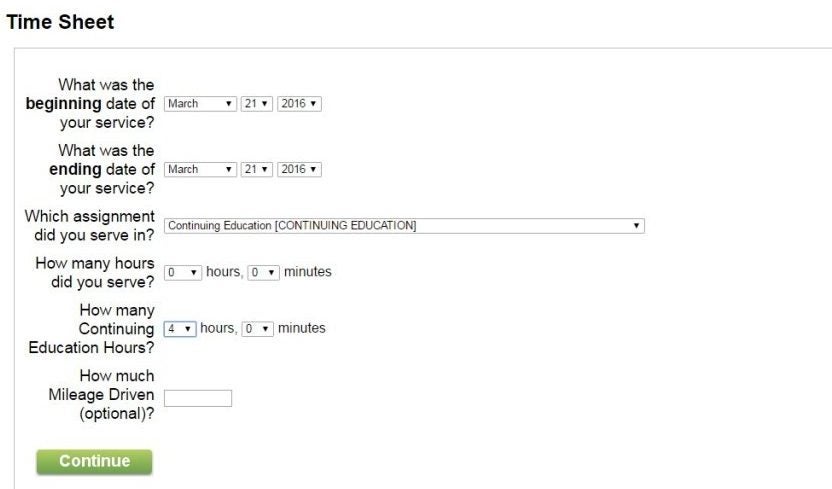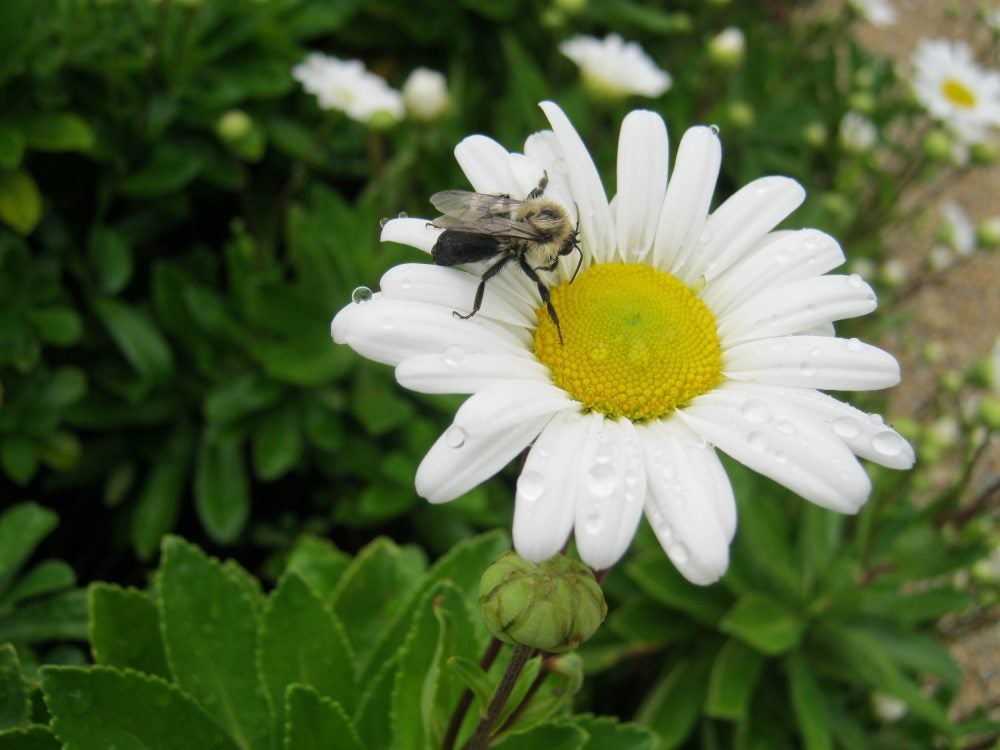URI MGP Newsletter, Feb 23: Become a plant diagnostician and a water expert
Diagnostics Skill-Building Series - Special Training!
 The “Diagnostics Skill-Building Series” of continuing education workshops is designed to refresh your knowledge of early season pest updates, existing resources, public interaction skills and basic problem ID. Volunteers directly working with the public including speakers, hotline workers and kiosk workers. Later workshops will include hands=on ID skills in the field. As always, bring your questions and examples of how to solve some problems. Look for some new resources from each class to aid your ID skills. If you attend 3 out of the 4 sessions we’ll give you some nice parting gifts to help you identify problems at home or on the job. You must register through Volgistics for this course.
The “Diagnostics Skill-Building Series” of continuing education workshops is designed to refresh your knowledge of early season pest updates, existing resources, public interaction skills and basic problem ID. Volunteers directly working with the public including speakers, hotline workers and kiosk workers. Later workshops will include hands=on ID skills in the field. As always, bring your questions and examples of how to solve some problems. Look for some new resources from each class to aid your ID skills. If you attend 3 out of the 4 sessions we’ll give you some nice parting gifts to help you identify problems at home or on the job. You must register through Volgistics for this course.
The sessions series layout is:
Part I: Introduction
Thursday February 23rd, 6-8 pm
URI Pharmacy 170
It will be an early season update of some of our most troublesome pests (various caterpillars) presented by Heather Faubert, Plant Clinic Director. Horticulture educator, Rosanne Sherry will give an update of the MG Quick Tip series and the Decision Tree process and resources.
Part 2: Trees, Shrubs Perennials
Tuesday May 9th 6-8 pm.
East Farm Building 75
The focus will be on ornamentals including herbaceous and woody plants. We will work on some common problems that may occur and how to question the client about what may be presented to you in person. Send photos or bring samples of a problem. We’ll have an activity and hands on quiz about the problems we gather.
Part 3: Wildflower ID Walk
Saturday, June 10th 9:00-11:30 am
East Farm
Join Dr. Carl D. Sawyer, a former research associate from the URI Department of Plant Sciences on a stroll at URI East Farm identifying wildflowers and other plants using the Newcomb’s Wildflower Guide.
Part 4: Vegetables
Tuesday, August 8th 5:30-7:30pm
East Farm Field House
We will study in the Demonstration Vegetable Garden. Our walkabout through the garden will highlight common symptoms and organic controls and techniques to share with clients. Because the garden is so well tended we may not find a lot of problems, so bring a photo or sample of a vegetable problem you may be having.
Please visit Volgistics
All volunteer and continuing education hours should be posted in Volgistics by February 26th, so that the pin order can be submitted for processing. Pins will be awarded at the membership meeting on March 23rd. Those unable to attend will receive their awards by mail.
Passionate about water quality issues?
 Interested in lawn care management and how those decisions affect our water quality? Researchers at the University of Rhode Island are conducting a short online survey on lawn care and water quality. These survey responses will provide us with vital information for this research funded by the National Science Foundation.
Interested in lawn care management and how those decisions affect our water quality? Researchers at the University of Rhode Island are conducting a short online survey on lawn care and water quality. These survey responses will provide us with vital information for this research funded by the National Science Foundation.
We’re counting on participation from residents like you. You can receive $2 in Amazon credit for your participation. Please take the time to fill out the survey before March 31st.
Type this in your browser: goo.gl/Jr5hBm
This research has been approved by URI’s IRB.
Gardening for Water Quality in the Ocean State
If you missed it at URI, you can catch it on your home computer. Gardening for Water Quality in the Ocean State class recording has been posted.
And, watching the video, counts for Continuing Education hours. Not sure, how to post your hours? Here’s a reminder.
Each year, we ask our certified URI Master Gardeners to complete 10 continuing education hours. In order for them to show up properly in our records:
- When asked “Which assignment did you serve in?” please choose: “Continuing Education”
- When entering hours, do so in the spot reading: “How many Continuing Education Hours?”
Your timesheet screen in Volgistics will look like this:

International Master Gardener Conference
 The last day to receive the $50 early registration discount for the 2107 IMGC is Tuesday, February 28th.
The last day to receive the $50 early registration discount for the 2107 IMGC is Tuesday, February 28th.
We are close to selling out our capacity: 1,057 have registered to date, and we have room for 1,210 at lunch. If you have been putting off registering, now is the time to register to secure your spot!
For more information, please visit: http://blogs.oregonstate.edu/2017imgc/http://blogs.oregonstate.edu/2017imgc/
If you have already registered (or if you want to lurk and find out more about the conference), make sure to download the conference app. It has the full conference schedule, linked to venue maps; speaker bios; trade show exhibitor profiles and booth location; Portland area map, and more. You can save your schedule, send notes to other attendees, rate sessions you have attended, and more. Search in Google Play or in the App Store for ‘International Master Gardener’, and the app should pop right up. Or, the direct links to the app are below:
Looking for farmland?
SCLT is working with partners around the state to help connect people seeking farmland with landowners leasing or selling their land. Project partners include: Young Farmer Network, The Nature Conservancy of Rhode Island, RI Department of Environmental Management, RI Land Trust Council, Northern RI Conservation District, and Land For Good.
If interested, please complete this form to be added to the list of farm seekers. SCLT staff or one of our project partners will contact you if prospective land becomes available. Additional questions? Contact Laura at SCLT: laura@southsideclt.org
Hot Topics from the URI Consumer Horticulture Educator
 The following science-based articles may help you answer questions from the community. Rosanne Sherry, URI Consumer Horticulture Educator, recommends you read them to help sharpen your own gardening and educator skills! Please send comments or suggestions for articles to rsherry@uri.edu.
The following science-based articles may help you answer questions from the community. Rosanne Sherry, URI Consumer Horticulture Educator, recommends you read them to help sharpen your own gardening and educator skills! Please send comments or suggestions for articles to rsherry@uri.edu.
The latest Master Gardener Quick Tips is now available in the MG Gardening Resources Section under Documents. It is dated 2.15.17. Timely tips are now sorted by season. There is an index sheet listed as well so you can quickly find a topic.
https://web.uri.edu/mastergardener/documents/
Xerces Society e Newsletter January 2017
http://www.xerces.org/blog/new-report-how-neonicotinoids-can-kill-bees/
Green Talks e-newsletter 2.14.17
- Who’s Regulating Chemicals? Editor Jennifer Duffield White commentary
It’s expected, with pending changes at the Environmental Protection Agency, that we’ll see a change in some of the federal rules by which the chemical and manufacturing industries operate. And yet, it’s worth remembering that retailers and state and local governments can create a significant impact on what’s sold or used in the manufacturing/growing process.For the last few years, retailers have been pushing to affect change at the store level—as we’ve seen with plants and certain pesticides, either limiting or labeling plants that have been treated with neonicotinoids.
Target recently announced they are proceeding with a transparency and chemicals policy that will include restricting (minimizing or eliminating) certain substances in textile, beauty, baby care, personal care and household cleaning products. (They do not mention garden products.) And don’t forget that Walmart has their own program to phase out specific chemicals. But the out-of-the-ordinary part of Target’s announcement was that they say they will also be putting money towards research and development of safer alternatives.
Which is to say that consumers and retailers, for better or worse, have concerns, and they still have a lot of power in the marketplace.
- A Drone that Pollinates? Technology for technology’s sake??
New Scientist recently reported on research out of Japan that has created a pollinating drone that does the work of bees. With pollinator populations in trouble in many areas, and with so many crops dependent on pollination, the drone is being touted as perhaps the wave of the future. Thus far, researchers at Japan’s National Institute of Advanced Industrial Science and Technology have successfully cross-pollinated Japanese lilies with the small 4-cm-wide drone.
With pollinator populations in trouble in many areas, and with so many crops dependent on pollination, the drone is being touted as perhaps the wave of the future. Thus far, researchers at Japan’s National Institute of Advanced Industrial Science and Technology have successfully cross-pollinated Japanese lilies with the small 4-cm-wide drone.But critics have cited that a) drones could not feasibly pollinate acres of orchards with thousands of flowers per tree, and b) a drone would not solve the issue of bees’ other ecosystem services, including pollinating plants in nature.
Northeast Climate Hub newsletter February 2017
https://content.govdelivery.com/accounts/USDAOCE/bulletins/188047e
 Home
Home Browse
Browse Close
Close Events
Events Maps
Maps Email
Email Brightspace
Brightspace eCampus
eCampus


